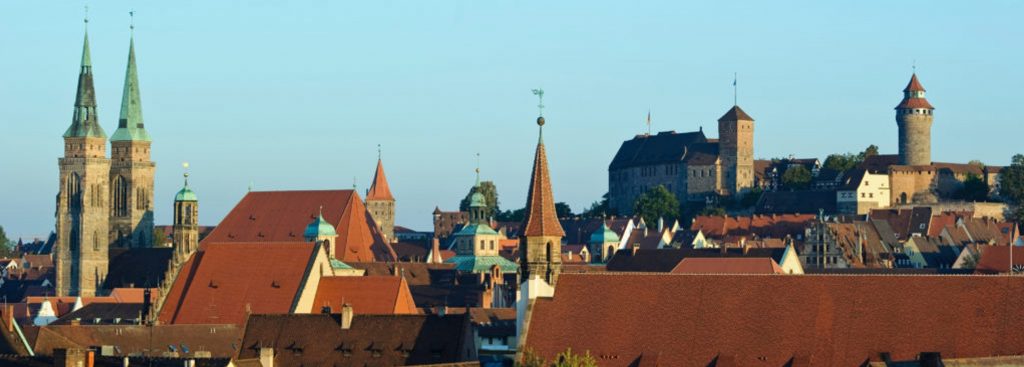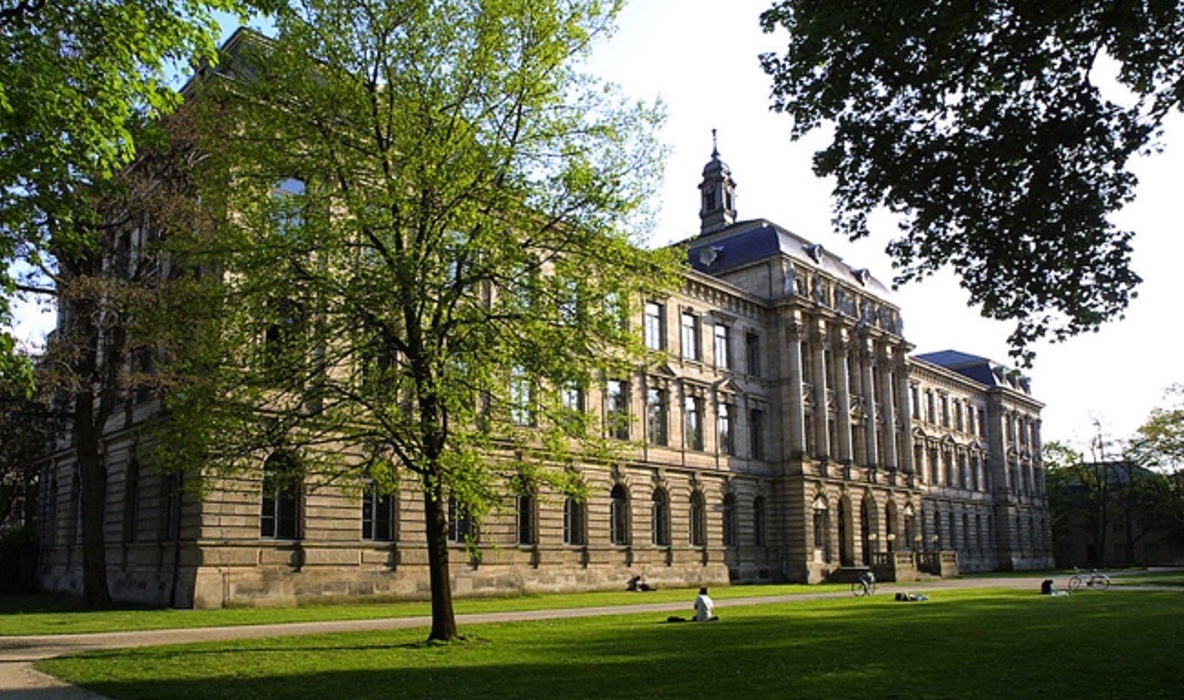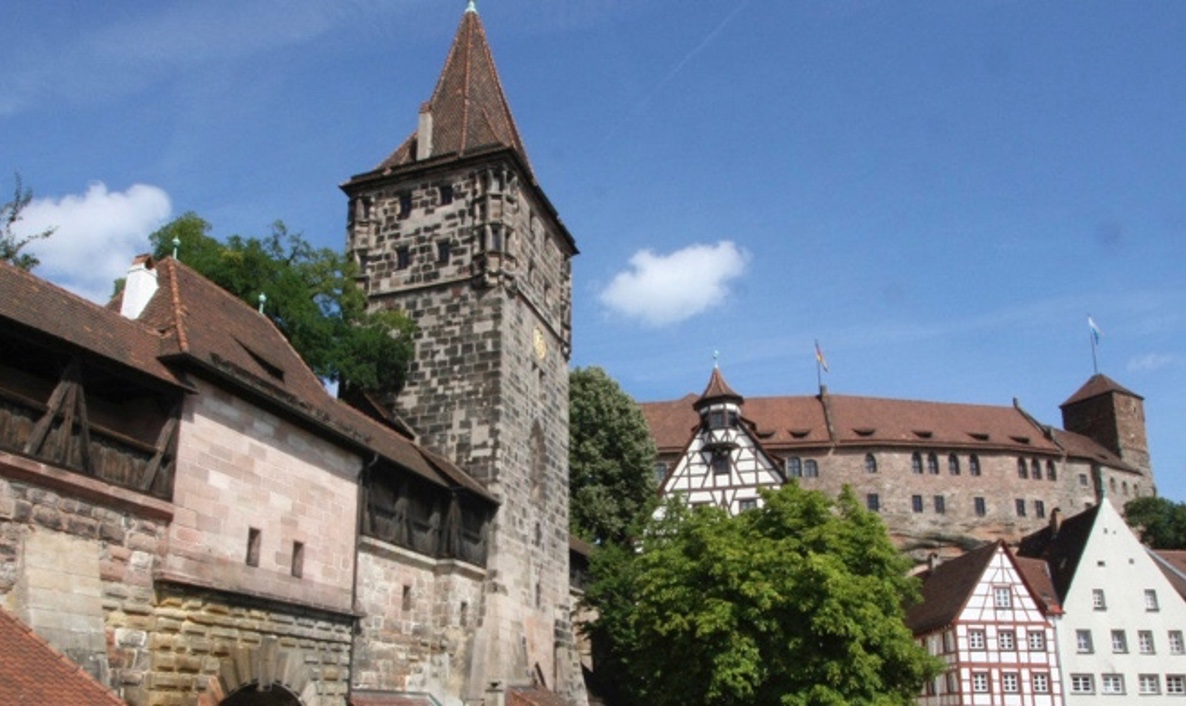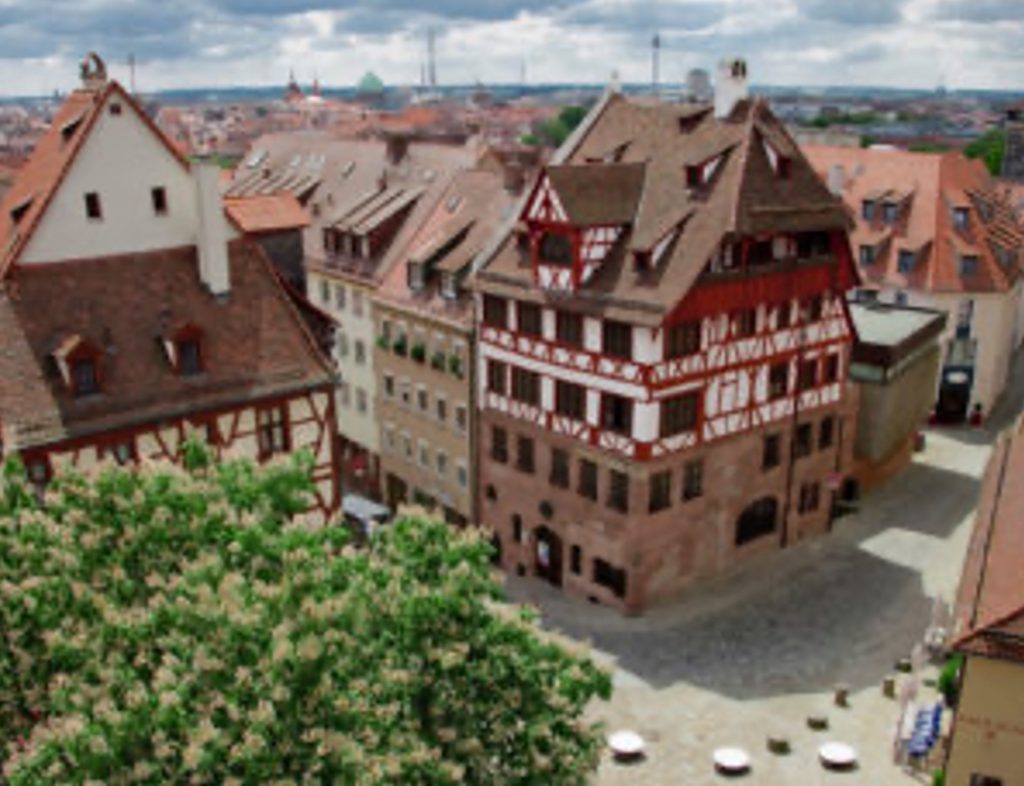Erlangen
A home for creative minds, keen athletes and nature lovers

FAU’s two main sites, the cities of Erlangen and Nuremberg, are located at the heart of the Nuremberg Metropolitan Region. Both Erlangen, a bicycle-friendly city with 100,000 inhabitants, former home of the Huguenots as well as a key location for Siemens, and Nuremberg, a city with a population of half a million and a metropolitan flair, have their own unique charms. The opera, theatre, cabaret and museums, various sporting and leisure activities along with a lively pub scene and night life, offer plenty of opportunities to relax after a day in the lecture theatre, lab or library. The mixture of academia, innovative companies, art and culture makes the region the perfect place for creative minds, keen athletes and nature lovers.

Kollegienhaus (Image: FAU/Erich Malter)
Erlangen is considered to be one of the most attractive and popular places to live in Germany, as shown year after year in various rankings. It gained its reputation as a cosmopolitan city in the 17th century when it became a second home to the Huguenots. The atmosphere is as international today as it was back then. This is partly due to FAU with its students and staff from all over the world, and partly due to the international companies which are based in Erlangen and the surrounding area. The mixture of people of all ages, both native Franconians and those who have moved to the area, has ensured that the savoir-vivre of the former French immigrants is still present today. The Schlossgarten in Erlangen is a popular meeting place open to the public and has been owned by the University for over 200 years.

Tiergärtnertorplatz in Nürnberg (Image: Uli Kowatsch/CTZ-Nuernberg)
Outside of Bavaria and Germany, the first things people associate with Nuremberg are often the Christmas market and Lebkuchen, the city’s gingerbread-like speciality, followed by the Castle and the old town’s half-timbered houses. But Nuremberg is also a modern metropolis which has plenty more to offer. Many industrial companies and service providers are located here and it is an international transport hub, trade fair centre and a key location for academic work and research. Nuremberg is also very conscious of its 950-year history and also recognises the unpleasant side of its past. Visitors to the city see evidence of its importance as a medieval imperial city and trade centre in its Castle, churches and half-timbered houses and of its role during the Third Reich as the location of the Nuremberg Rallies.
Art and culture

Nuremberg and Erlangen have plenty to offer when it comes to art and culture. There are many museums and a lively music scene featuring everything from the Bardentreffen world music festival and Rock im Park to open air classical concerts by the Nürnberger Philharmoniker orchestra and opera performed by the Nürnberger Staatstheater. There are also numerous events centred around various aspects of culture where you are sure to experience a few surprises and see some unexpected treasures.
You can find more information about museums, festivals, sport and leisure in general at https://www.fau.eu/education/student-life/erlangen-nuremberg-region/.
